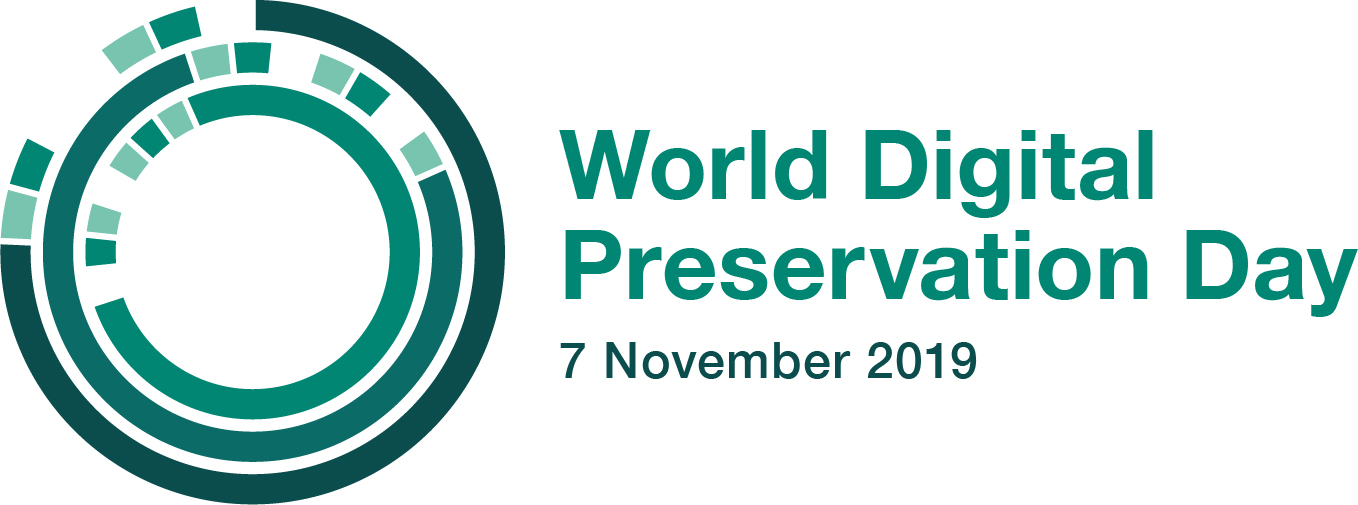
November 4, 2019, by Emma
Sharing your research data – World Digital Preservation Day 2019
Guest post from Beth Montague-Hellen, Senior Research Librarian (@PhdGeek)
Two weeks ago, Libraries celebrated Open Access Week 2019 by running a series of workshops for researchers. One of the events that we ran was a data sharing workshop where we helped researchers to understand where and how they could store and share their digital data at the end of a project.
Sharing data is important for making sure that the research has as great an impact as possible, but also because many funders and journals ask researchers to do it, and the new University Research Data Management (RDM) policy does too.
So why am I talking about this here? Well, World Digital Preservation Day has a related theme – ‘At Risk Digital Materials‘. As well as increasing impact and conforming to policy requirements, sharing your data can help you reduce the risk of loss or degradation.

Image CC-BY 4.0 Illustration credit: Ainsley Seago. Source: Roche DG, Lanfear R, Binning SA, Haff TM, Schwanz LE, et al. (2014)
Do you have research data files sat on your hard drive from work you completed years ago, in the hope that one day you might find it useful? The longer you keep them on your hard drive the greater the chances that you might lose those files through hard drive failure, through degradation of the files, or maybe even just through forgetting that you had them in the first place!
When a project is finished, the best thing to do is have a digital clear out. Think about what data you’re still actively using, what data you might want in the future and what data you might want to delete at this stage.
This Digital Preservation Day, why not take a look through your old files and see how they could be better stored.
How to review your data
Here are some questions you might like to think about.
1. Do you need to keep it? Should it just be deleted?
We often keep files ‘just in case’, but if it’s not useful, or if it contains sensitive or personal data, the best course of action might be to delete it.
2. Is there any personal or sensitive data there?
If you’ve got personal or sensitive data from research participants you’ll need to go back to the documents which told them how you’d use this data. Did you say you’d keep it securely for 7 years? Then that’s what you’d better do.
3. Who might this data be useful to? Just you, or others as well?
Just because some data didn’t work out for you, it doesn’t mean that it might not be useful for other researchers. Maybe someone else can re-purpose it in a way you never thought of, and bring you in as a collaborator, or at least cite your data.
4. Where is it currently stored?
Where is your data currently stored? If its on a hard drive or the R drive, it’s worth moving that data to OneDrive even if it’s still active. OneDrive (University log in required) gives you automated backups and is a secure solution for keeping personal data.
5. Have you created documentation to help others understand it?
It’s all very well storing your data securely so that it can be used in the future, but if you haven’t documented it, including variables you collected and the methods you used to do so, it’s not going to be any use. Remember – you’re the person who’s most likely to want to re-use your old data.
So how should you store your data?
If your data is active data, and currently being used by you and other colleagues, we’d suggest moving it to Microsoft Teams.
If it’s active data that is only used by you, then store it in your OneDrive.
If you’ve finished with it, but you think it has a future use, the Digital Research SharePoint pages (University log in required) can help you decide where you should store it, and how you could share it with others.
The University has a Data Repository which you can use at no cost for data sets up to 50GB.
To learn more about research data storage and sharing, enrol on the Research Data Management Moodle course or email library-researchsupport@nottingham.ac.uk
No comments yet, fill out a comment to be the first

Leave a Reply